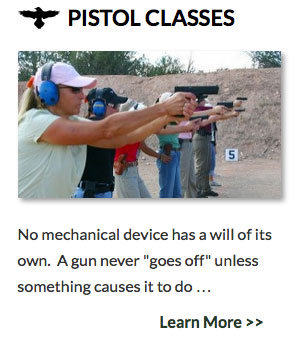Widgetized Section
Go to Admin » Appearance » Widgets » and move Gabfire Widget: Social into that MastheadOverlay zone
Let’s Play A Little What If……
As the pitched battle for gun rights continues across the nation, the battlefields have moved from Washington, DC to statehouses across the country. New York set the stage with Governor Cuomo cramming a package of anti-gun measures down the collective throats of New York state residents.
California, Colorado, and New Jersey are moving on their own versions of legislation designed to either regulate or irritate gun owners out their states initially. It’s easy to believe their goal is to end our existence.
The latest piece of legislature hasn’t even been officially announced, but it’s no secret that a piece of California legislation may be introduced as early as today. That would call for a complete ban on lead ammunition for hunting. And no, it’s not going to sit well with California’s hunters or shooters. But that doesn’t mean it won’t pass.
Another bit of proposed legislation would require New York’s gun owners to carry $1,000,000 in liability insurance. The costs are projected anywhere from $1,000-2,000 per person. That’s a tough nut to swallow. But not having the insurance, or allowing it to lapse, is grounds for cancellation of all permits -and seizure of any firearms you might own. The disqualification would be permanent.
California already has legislation that allows police to confiscate any firearms owned by people once qualified for firearms ownership but subsequently disqualified. These two measures are only two of the most blatant attempts to make firearms illegal-and allow officials to legally seize them from their owners.
In case you think I’m exaggerating, California already seizes as many as 10,000 guns per year under their “once-qualified” provision.
But there may be a common set of goals we’re all missing. Banning of certain classes of firearms and/or accessories certainly seem to be the immediate goal. But there is a growing sentiment that those pitched battles over classes of firearms or capacities of magazines may be diversions to keep pro-rights groups from seeing another short-term goal with very long-term implications: redefinition of legal terminology.
Looking at state-level legislation proposed across the country, there is an undeniable homogeneity to the proposals. To me, it seems that Mayors Against Illegal Guns (MAIG), the group founded-and funded- by New York City Mayor Michael Bloomberg might be authoring a very large majority of the language.
In fact, last week’s rancorous testimony regarding anti-gun rights legislation proposed in Colorado used anti-gun “facts” and assertions that were nearly verbatim “lifts” from MAIG’s talking points. Those same points were parroted in New Jersey and other statehouses where liberal lawmakers did little to hide the fact that their having enough votes to pass their legislation removed any pretense of objectivity.

Last week’s testimony in New Jersey was heated, but did little, if anything, to dissuade anti-gun rights legislators. NJ2AC Photo
But what if the intent of this legislation wasn’t really the banning of magazines or classes of firearms? What if the real intent was to let the bans be watered down while pushing through sweeping redefinitions of terms we all think are clearly defined?
Consider, for example, the lawful transfer. That’s a transfer of ownership between two private parties or between a federal firearms licensee and a purchaser, right? To a point.
But what if language broadened to the point that the term “transfer” was applicable to any regulated item -such as a “high-capacity magazine” used in competition and not just a “firearm”?
It seems to be a very small distinction, until you realize that a lawful transfer, as stated under Colorado’s proposed statutes, would be applicable to magazines. And those definitions went on to broaden a “recognized competition” as having been run by either a state agency or non-profit. SASS, IDPA, USPSA are not, technically non-profit organizations. Under that broadened definition, USPSA/IDPA match officials picking up a magazine dropped during a competition stage would be participating in an illegal transfer.
If a competitor’s gun broke, for instance, a fellow competitor offering the use of their gun – a common enough happening in our not-unfriendly competition world- the shooters would have -under broadened definitions used in much of the proposed legislation- made an unlawful transfer.
Universal background checks might not be the tool to get anti-gun rights groups to their ultimate goal. Redefinition of a legal transfer could make it possible to raise an insurmountable set of unacceptable situations. The inability to loan a gun to a fellow competitor sounds unreasonable, but under the extremes of some of the definitions offered under these new regulations, even handing your gun to someone else to examine it could constitute an “illegal transfer”.
And in each instance, the penalties for illegal transfers are significant, ranging from small fines to confiscation of personal firearms, forfeiture of permits or licenses for legal ownership and even potential prison sentences.
It may seem extreme, but a simple fact is that by defining what is legal, there is a defacto definition of what is illegal: anything not defined as being legal.
In essence, it postulates (or posits if you’re talking legalese) a given…if several things are defined as being legal, things not defined are presumed to be illegal.
Looking at such a broadened set of definitions might seem extreme, but creating incredibly broad definitions of what constitutes “possession of a firearm” might create a series of ever-tightening traps where the simple act of handing a firearm across a fence to a hunting partner prior to your crossing the fence is an illegal transfer.
Would such broad definitions pass the scrutiny of the United States Supreme Court? As the court is positioned today, most likely not.
If, however, a single conservative Justice were to be replaced by anyone other than a strict constitutionalist, the likelihood of a successful challenge to those trapping definitions would be much less likely.
Attorneys I’ve spoken are pretty evenly divided on the suggestion. Those who dismiss it say it’s worrying about something that hasn’t happened.
Others have offered a variety of suggestions for circumventing that tightening. Those range from “don’t ask/don’t tell” about firearm ownership to creation of irrevocable trusts that don’t just cover cover guns, but include accessories, especially larger-capacity magazines.
What if doesn’t lend itself to dismissing efforts of anti-gun right groups. Especially when the game leads you to recognize how similar arguments and positions are across the entire country.
And “what-if” all gun companies “fired” law enforcement agencies in states where new anti-gun measures have been passed. You know, companies all refused to sell guns, parts or accessories not legal for “civilian” use to law enforcement.
One school of thought says that as a matter of principle, that should be the case across the board. You can read that opinion in virtually any discussion forum, along with the promise never to do business with companies that don’t “take the pledge”.
Considering this idea only as a matter of individual conscience, it’s easy to understand hammering any company of saying they’ll apply one business criterion to law enforcement and civilian gun owners.
But it isn’t that simple.
If, for instance, you’re an officer in a public company, there’s a different set of rules that apply. Officers in publicly held companies have something that privately-held company managers don’t: a fiduciary responsibility to shareholders.
Simply stated, the job of officers in a publicly held company is to maximize value (profit and share price) for the company’s investors. Setting corporate values isn’t something that can be done purely as a matter of conscience. Cutting off a source of revenues-without a clearly stated company policy stating that course of action is asking for disgruntled shareholders to take legal action against you for damaging the company’s revenue streams.
Without betraying any confidences, those what-if conversations are being held at virtually every company in the industry. Frankly, some companies are at a loss as to a reasonable course of action. Others are irritated that there doesn’t seem to be a clear-cut course of action for anyone.
We’re listing to those conversations- and hearing about strategies being discussed on both sides of the firearms issue. Today, it’s safe to say that pro-gun rights legislators can be prepared for an onslaught of negative television campaigning against their opposition to strict new rules regulating gun ownership.
Mobilizing the base is the are where it’s most obvious that this fight over gun rights is different from the many fights we’ve seen in the past. Taking a page directly from the Obama presidential campaign, anti-gun rights groups are taking their message directly to the grassroots and “energizing their base” to get vocal and visible when it comes to letting legislators know that they expect support for gun restrictions.
It’s time that our side of the aisle come up with an equally persuasive message to individual gun owners. This fight over gun rights is different from ones that preceded it in one key way: the fight against gun rights is being fought by individuals. We’re accustomed to institutional-level fights and seem not quite ready to fight this in the hand-to-hand manner it may take to win.
As always, we’re listening to the conversations on both sides of the issue, and we’ll keep you posted.
Jim Shepherd is the Editor and Publisher of the The Outdoor Wire Digital Network.
The material published here reflects only the opinion of the author, and does not necessarily reflect official positions of Outdoor Channel.



 MidwayUSA
MidwayUSA Ruger Firearms
Ruger Firearms SCCY Firearms
SCCY Firearms Streamlight
Streamlight Action Targets
Action Targets Gunsite Academy
Gunsite Academy
You must be logged in to post a comment Login